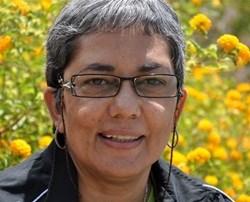
Top stories





Marketing & MediaWarner Bros. was “nice to have” but not at any price, says Netflix
Karabo Ledwaba 2 days

More news

Logistics & Transport
Maersk reroutes sailings around Africa amid Red Sea constraints


















"It's a casting off of where you come from and the chance to make a new identity and destiny," he explained. "You have no contact with your family or friends for the first six weeks. Only then can the family come."
Two years ago, he entered the academy as a student to begin a three-month youth development programme that he had been told would give him focus, discipline and the life skills he would need as an adult. Now he is on the other side and in a position to be a positive role model and mentor to the new recruits.
The academy teaches resiliency skills to marginalised young men and women who may have been directly or indirectly exposed to substance abuse, family, gang and community violence. They will also be grindingly familiar with poverty, hurt and disappointment. Their 12-week course teaches strategies in processing trauma, in managing anger and conflict. It teaches discipline, interpersonal skills and covers issues like health and nutrition, personal safety and leadership.
Designed as a holistic intervention for vulnerable youths, its curriculum addresses physical, emotional, practical and spiritual needs. It also tries to match students who have completed the three-month course with available employment opportunities and encourage them to continue their schooling to matric level or to take further training and empowerment courses.
"The course teaches you determination, discipline and dedication," explained Vermeulen. "It makes you strong, with faith in yourself so you can make something of your life. You learn that whatever your problems, there are others with their own problems, some of them truly terrible."
Funded mainly by the Western Cape Provincial Department of Community Safety with various other Western Cape provincial departments also providing support, the academy also relies on private sector donations. Distell, for example is a major contributor.
Students who apply must be a resident in the Western Cape, aged between 17 and 25, have at least a Grade 9 level of schooling and have no criminal convictions. They will be interviewed by a selected team of management. A final selection will be undertaken by a team that includes psychological, social work and educational specialists to assess their level of motivation and their physical state of health. If applicants are successful, they will be required to move into the academy's premises and stay for three months, following a strictly run schedule from when they wake up till they go to sleep.
Once they leave Chrysalis, students will have access to the academy for a further five years. They can attend selected job skills programmes, participate in sports training, in refresher courses, join reunions and seek support for issues confronting them at home.
The academy also maintains contact every two weeks to establish how former students are doing and a community liaison officer keeps track of where they are living and working and how they are managing.
Applications for the course flow from word-of-mouth community recommendations, from religious organisations and sometimes social workers. Of the more than 1000 people who applied for the most recent intake in September, 181 were accepted. The facilities can, at a squeeze, accommodate 190 people at a time.
There are three intakes a year, two for males and one for females with a staff of 38 who help them to see themselves and the world in a different and constructive way.
For more, go to www.chrysalisacademy.org.za.